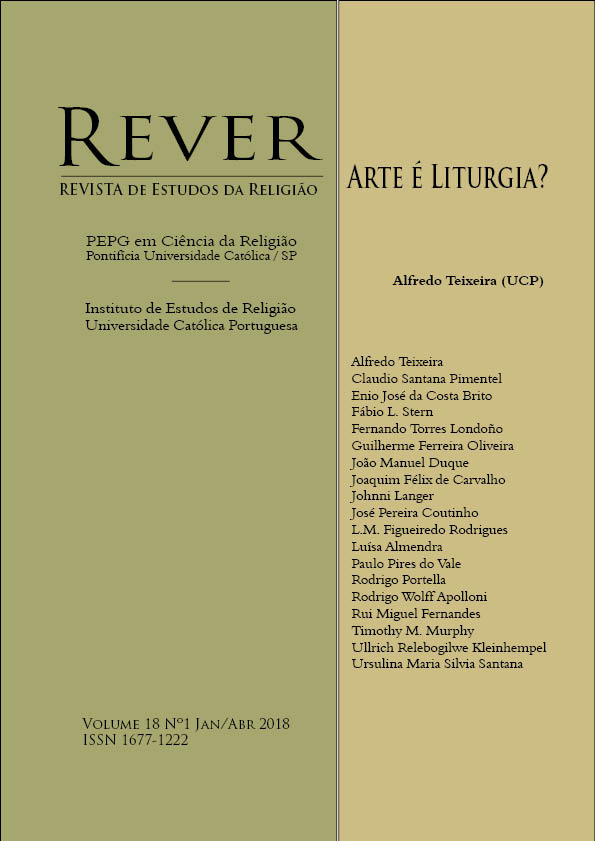Ciência da religião como discurso colonialista: o caso de Rudolf Otto
DOI:
https://doi.org/10.23925/1677-1222.2018vol18i1a15Palavras-chave:
Rudolf Otto. Colonialismo. Ciência da religião. Fenomenologia da religiãoResumo
A abordagem dominante na ciência da religião conhecida como fenomenologia da religião possui um pressuposto central de que subjacente à multiplicidade de religiões historicamente e geograficamente dispersas há um substrato metafísico e trans-histórico chamado de “o homem”, Geist ou “consciência”. Esse substrato transcultural é um agente expressivo de natureza uniforme e essencial. Ao interpretar os dados da religião como “expressões” desse substrato, poderíamos entender de forma empática seu significado. Assim, Geist, ou “o homem”, é uma filosofia da história e uma teoria hermenêutica. Também forma um conjunto sistemático de representações que reproduz a estrutura das relações assimétricas entre os europeus e os colonizados pelos europeus. A metanarrativa de Geist é uma narrativa da supremacia – palavras deles, não minhas – da Europa branca cristã sobre a África negra “primitiva” e a Ásia “despótica”. O espírito se move do sul para o norte; afastando-se do oriente para o ocidente. Este artigo localiza o trabalho de Rudolf Otto dentro da estrutura e história do discurso fenomenológico, argumentando que a ciência da religião como ali descrita se adapta perfeitamente às estruturas do discurso colonial como já discutidas e analisadas por teóricos como Jacques Derrida e Edward Said.
Downloads
Publicado
Como Citar
Edição
Seção
Licença
Autores que publicam nesta revista concordam com os seguintes termos:
- Autores mantém os direitos autorais e concedem à revista o direito de primeira publicação, com o trabalho simultaneamente licenciado sob a Licença Attribution-NonCommercial 4.0 International, que permite o compartilhamento do trabalho com reconhecimento da autoria e publicação inicial nesta revista.
- Autores têm autorização para assumir contratos adicionais separadamente, para distribuição não exclusiva da versão do trabalho publicada nesta revista (ex.: publicar em repositório institucional ou como capítulo de livro), com reconhecimento de autoria e publicação inicial nesta revista.


